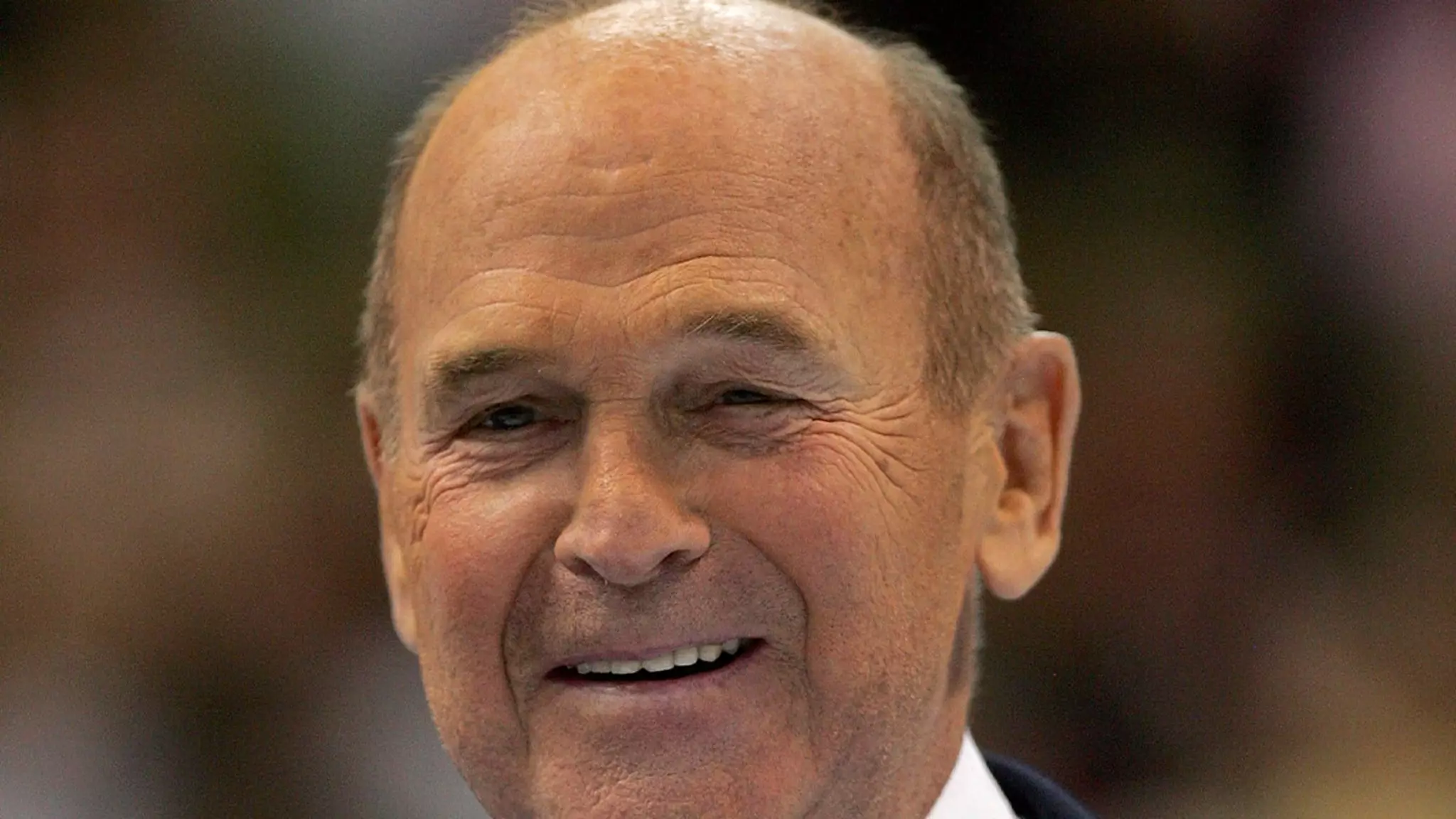The world of figure skating has lost an irreplaceable figure with the passing of Dick Button at the age of 95. His death, confirmed by his children and reported by the Washington Post, resonated as a profound loss not only for the sport but also for the countless fans who saw him as an embodiment of American figure skating. Button’s remarkable journey spanned decades, making him a pivotal figure in transforming figure skating from a European-dominated pastime to a competitive arena where American athletes could shine.
Born in 1929, Button entered the competitive scene during the mid-20th century, a time when few could envision American dominance in figure skating. His performances in the 1940s and 1950s reshaped the landscape of the sport, beginning with his groundbreaking wins. The 1948 Olympics marked a transformative moment when he secured his first Olympic gold medal, making history as the youngest man to do so in this category. Button’s wins evolved beyond mere competitions—they became milestones that inspired future generations of skaters.
Button’s contributions were not limited to his athletic prowess. He garnered significant attention with his explosive techniques, particularly when he landed the first-ever triple jump in Olympic history, the triple loop, during the 1952 Winter Olympics in Oslo. This achievement not only showcased his technical skill but also pushed the boundaries of what was possible in the sport. His ability to innovate on the ice established new standards, compelling upcoming skaters to rise to the challenges he set.
Following his illustrious amateur career, Button transitioned into professional skating, landing a record-smashing contract with the Ice Capades—worth $150,000 at the time, which positioned him among the highest-paid athletes globally. This leap into professionalism reflected a growing acceptance of skating as a viable career, a notion that was still somewhat foreign during his early days in competition.
In 1960, Button shifted to broadcasting, where he carved out a new legacy. His debut at the Winter Olympics for CBS marked the beginning of his journey as a commentator, providing viewers an insightful, often candid, commentary style that became a staple of his broadcasts. Many fans remember his sharp critiques; he was unafraid to voice honest opinions about performances, whether they were exuberant or, in his view, lackluster.
His work with ABC’s “Wide World of Sports” solidified his position as a household name. For generations of figure skating enthusiasts, he was not just a commentator, but a passionate storyteller who conveyed the spirit of the sport to a broader audience. His final appearance during the Vancouver 2010 Winter Olympics symbolized the culmination of his enduring influence on figure skating, bridging the gap between past legends and emerging talents with grace.
The day of Button’s passing was also marred by tragedy within the skating community. The sport was in mourning over the loss of 14 individuals—skaters, coaches, and parents—who perished in a tragic plane crash involving American Airlines 5342. Their untimely death, occurring right as Button’s legacy was being celebrated, underscores a somber moment in figure skating history that will never be forgotten.
What makes Button’s story even more poignant is the vast influence he wielded. His two Olympic gold medals and seven U.S. national championships remain records that reflect not just personal achievement but also an evolving narrative in American figure skating. His family, including his two children, will undoubtedly carry on his legacy, sharing the stories of a pioneering spirit who truly put America on the figure skating world map.
As we reflect on Dick Button’s life and contributions, it becomes clear that he will remain a cherished figure, known forever for his role in revolutionizing the sport of figure skating. His story is not merely one of gliding across the ice; it is about breaking barriers, forging pathways for future generations, and creating an enduring legacy that will inspire skaters for years to come.

